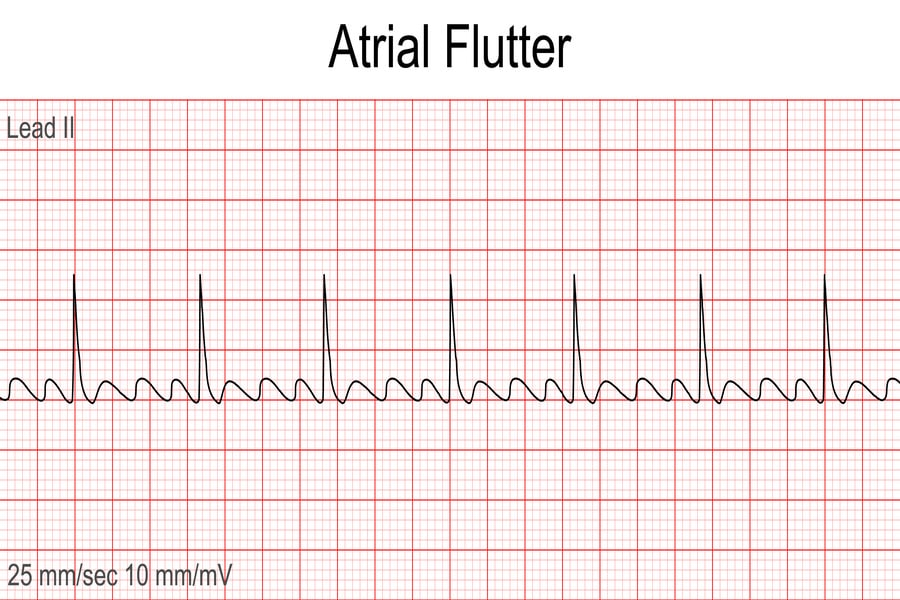Atrial flutter, often overshadowed by its more famous relative, atrial fibrillation, is a significant arrhythmia in its own right. This comprehensive guide aims to demystify atrial flutter, shedding light on its origins, manifestations, preventive measures, and more.
Definition and Overview
Atrial flutter is a heart arrhythmia where the atria – the heart’s upper chambers – beat too quickly, causing the heart to beat in a fast, regular rhythm. It’s a condition where electrical impulses form a circuit in the atria, usually around the tricuspid valve, and cause the rapid contraction of the heart muscle, leading to a fluttering sensation in the chest.
Symptoms of Atrial Flutter
Many people with atrial flutter may not even realize they have it, while others experience a range of symptoms:
- Palpitations or a rapid heartbeat
- Fatigue
- Dizziness or lightheadedness
- Shortness of breath
- Mild chest pain or discomfort
- Fainting (syncope)
- Feeling as if one’s heart is racing or pounding
Causes of Atrial Flutter
Several factors can instigate atrial flutter:
- Diseases that cause inflammation or degeneration of the heart, such as cardiomyopathy or valvular heart disease.
- High blood pressure
- Chronic lung diseases like COPD
- Prior heart surgeries or catheter ablation
Risk Factors
Certain elements increase the likelihood of developing atrial flutter:
- Age: Older adults are more susceptible.
- Heart Disease: Those with heart disease or a history of heart surgery have a heightened risk.
- Thyroid Disorders: An overactive thyroid can precipitate atrial flutter.
- Diabetes: This condition can increase the risk, especially if not well-managed.
- Alcohol Consumption: Excessive drinking, particularly binge drinking, can be a trigger.
Prevention: How to Avoid Atrial Flutter
While not all instances of atrial flutter can be prevented, certain lifestyle changes can reduce the risk:
- Maintain a Heart-Healthy Diet: Incorporate more fruits, vegetables, lean meats, and whole grains. Limit saturated fats, sugars, and sodium.
- Exercise Regularly: Aim for at least 150 minutes of moderate aerobic activity every week.
- Limit Alcohol and Caffeine: Both can be triggers for heart arrhythmias.
- Manage Stress: Techniques like meditation, deep breathing exercises, and yoga can help manage stress and its impact on the heart.
- Regular Health Checkups: Regularly monitoring conditions like high blood pressure or diabetes is essential.
When to See a Doctor
If you notice occasional heart palpitations, it’s essential to schedule an appointment with your doctor. However, if these symptoms are accompanied by severe chest pain, breathlessness, or fainting, it’s crucial to seek emergency medical care immediately.
Additional Information on Atrial Flutter
Atrial flutter can increase the risk of complications such as stroke. This is because the fast rhythm can lead to pooling and clotting of blood in the atria. It’s essential to get an accurate diagnosis and appropriate treatment to manage this risk.
Treatments for atrial flutter vary based on the individual but can include medications, catheter ablation (a procedure that scars or destroys tissue triggering abnormal heart rhythms), or electric shock (cardioversion).
Atrial flutter, while treatable, is a condition requiring understanding and proactive management. Recognizing symptoms, understanding risk factors, and implementing preventive measures can significantly improve the quality of life for those with this arrhythmia. As always, consult with a healthcare provider regarding any concerns about heart health.









